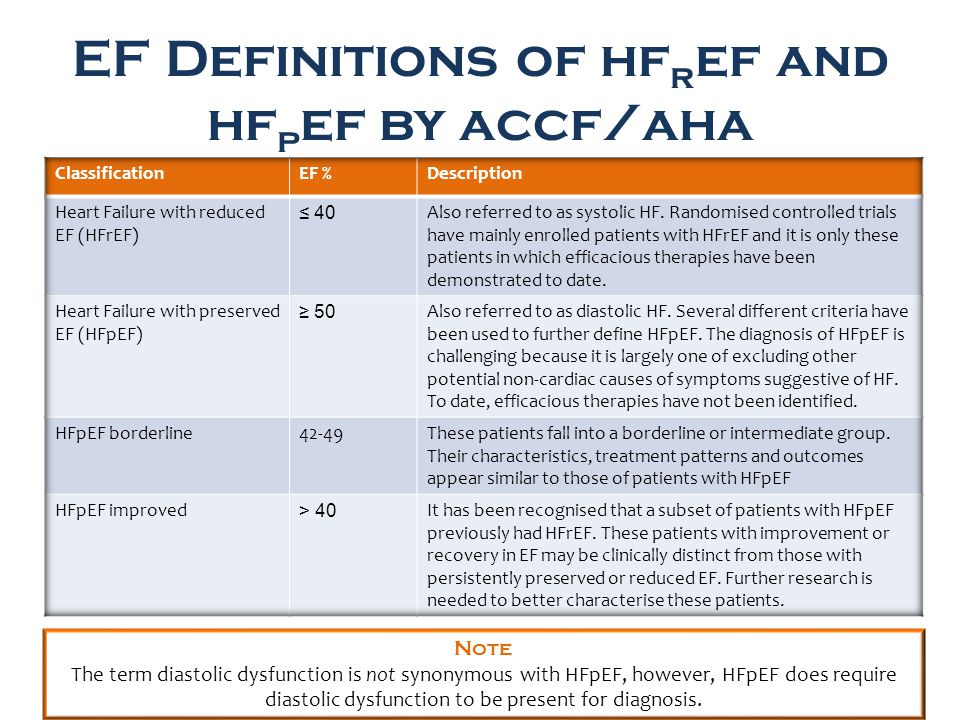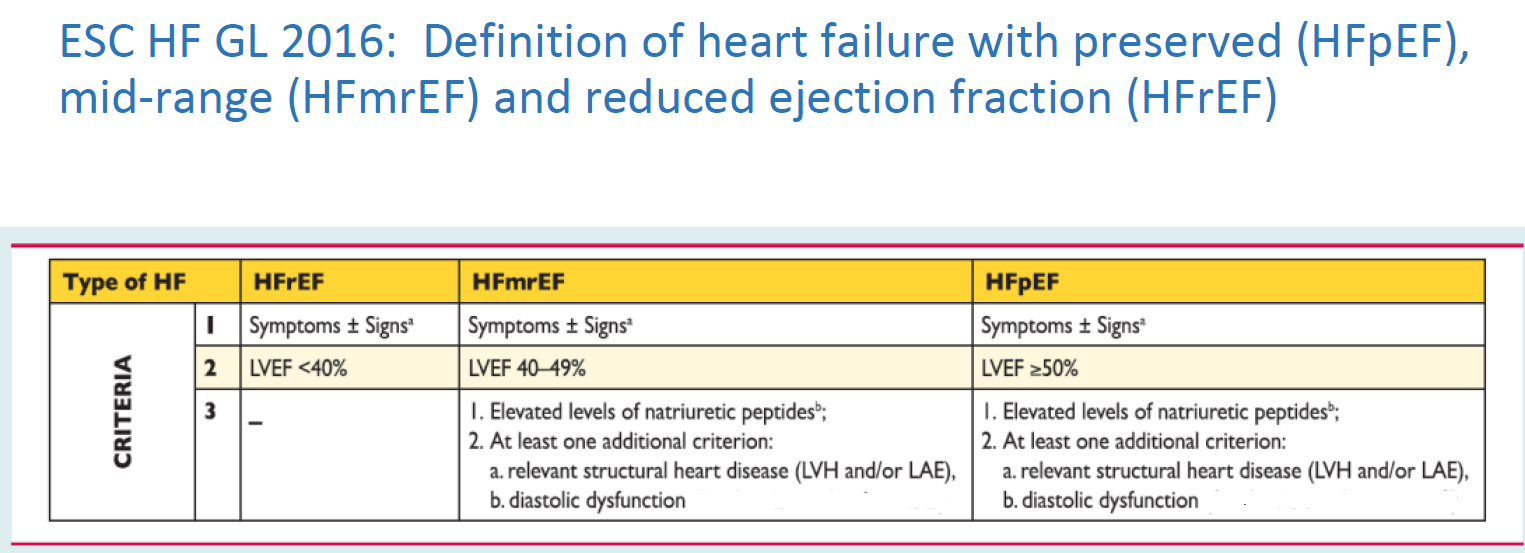Diastolic heart failure
Heart failure with preserved ejection fraction is estimated to constitute up to half of heart failure diagnoses worldwide (1)
- originally thought to represent the clinical manifestations of diastolic dysfunction (with the terms often used interchangeably)
- now clear that there are diverse pathological factors at work and even more diverse aetiologies behind this
HFpEF (Heart Failure with preserved Ejection Fraction) diagnosis:
- The American Heart Association (1) and European Society of cardiology (2) are broadly in agreement with their definitions of HFpEF as representing patients with signs and symptoms of heart failure, evidence of normal or preserved ejection fraction but objective evidence of other structural or functional alterations in cardiac structure
- ESC guidelines are more descriptive in terms of specifying particular markers of diastolic dysfunction and also taking into account stress testing, although both emphasize the importance of ruling out noncardiac causes of symptoms.
AHA criteria:


Notes:
- heart failure with a normal ejection fraction (HFNEF)
- according to population based epidemiology prevalence studies, a normal left ventricular ejection fraction was observed in nearly 50% of patients with HF symptoms (3). This is also known as heart failure with preserved ejection fraction (HFPEF). Some claim that HFNEF/HFPEF is synonymous with diastolic HF although this is controversial since:
- there is no universally accepted definition or agreed detection methods for diastolic HF (3)
- evidence point out that in these patients, the physiological abnormalities are not restricted to diastole only since there is an undetected impairment of systolic function as well (3,4)
- according to population based epidemiology prevalence studies, a normal left ventricular ejection fraction was observed in nearly 50% of patients with HF symptoms (3). This is also known as heart failure with preserved ejection fraction (HFPEF). Some claim that HFNEF/HFPEF is synonymous with diastolic HF although this is controversial since:
Reference:
- Dunlay, S.M., V.L. Roger, and M.M. Redfield, Epidemiology of heart failure with preserved ejection fraction. Nat Rev Cardiol, 2017. 14(10): p. 591-602.
- Yancy, C.W., et al., 2013 ACCF/AHA Guideline for the Management of Heart Failure A Report of the American College of Cardiology Foundation/American Heart Association Task Force on Practice Guidelines. Journal of the American College of Cardiology, 2013. 62(16): p. E147-E239.
- Sanderson JE. Heart failure with a normal ejection fraction. Heart. 2007;93(2):155-8.
- National Institute for Health and Clinical Excellence (NICE) 2010. Chronic heart failure. National clinical guideline for diagnosis and management in primary and secondary care
Related pages
Create an account to add page annotations
Add information to this page that would be handy to have on hand during a consultation, such as a web address or phone number. This information will always be displayed when you visit this page